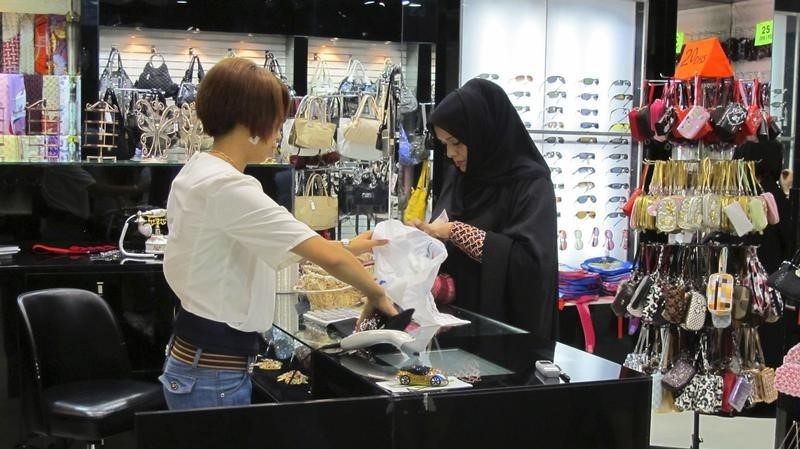By Sagarika Jaisinghani
DUBAI (Reuters) - Russian shoppers caught in a currency crunch are staying away from the Dubai Shopping Festival (DSF) this year, but visitors from elsewhere look set to make up the numbers at the annual retail bonanza.
Every January, Dubai is decked out in lights, banners and roadside ornaments heralding the event. Luxury boutiques staffed with Russian and Cantonese speakers promise generous discounts, and raffles offer cars as prizes.
Dubai, one of seven federal states in the United Arab Emirates (UAE), has far smaller oil reserves than the capital Abu Dhabi, and its economy relies heavily on retail, tourism and international trade.
The DSF, being held this year from Jan. 1 to Feb. 1, contributes over $1 billion of retail sales to the emirate's economy and Russian shoppers have always been among the biggest spenders, along with Saudi Arabians and Americans.
This year, however, more Russians have stayed home for the orthodox Christmas holiday, which coincides with the opening week of the festival, thanks to a crippled rouble
Russian travel operators in Dubai reported a sharp drop in the number of tours booked to the emirate compared with the same time last year, one by as much as 80 percent.
Dmitry, a 38-year-old Russian tourist in Dubai, said he was only able to afford the trip because he paid for his travel two months in advance.
"We had to cut down on shopping because the prices are much higher now in rouble terms," he said.
Nonetheless, early data suggest sales have not been affected. Shopping malls recorded an 18 percent increase in footfall during the first two weeks of the event compared to last year, according to the organisers of the festival.
"The cut in spending by Russians will not be a show stopper for the Dubai Shopping Festival because so many more people, including the local residents, are spending," said David Macadam, CEO of the Middle East Council of Shopping Centres.
Consulting firm Nasser Saidi & Associates expects retail sales in Dubai to rise 5 percent to about 160 billion dirhams (nearly $44 billion) in 2015.
Data from Dubai International Airport shows an increase in visitors from emerging markets. The number of passengers flying to the airport from Asia rose 14 percent year on year in November, the latest data available.
Visitor numbers from Eastern Europe and South America grew 54 percent and 15 percent respectively, albeit from smaller bases, whereas those from Russia and CIS countries fell 18 percent.
A young shopper from Beijing at Dubai Mall, the world's largest, said it was his first time at the DSF. Tales of fantastic discounts from friends had lured him to the emirate, he said, declining to give his name.
He held shopping bags from Zara, Bloomingdale's, Clarks and Marks & Spencer (L:MKS) as he talked to a Reuters reporter near the mall's indoor ice rink.
African tourists are also emerging as big spenders in the emirate. Nigerians spent nearly $27 million on MasterCard credit cards in the UAE in January 2014, the company said, compared with about $9 million in the same month of 2013.
While currency concerns may curtail some Nigerian spending this year, the naira
Flydubai, the emirate's low-cost airline, doubled its network in Africa last year by adding seven new routes.
Emirates airline plans to increase its African operations by 40 percent by 2024, President Tim Clark said in October.

($1 = 3.6730 UAE dirham)